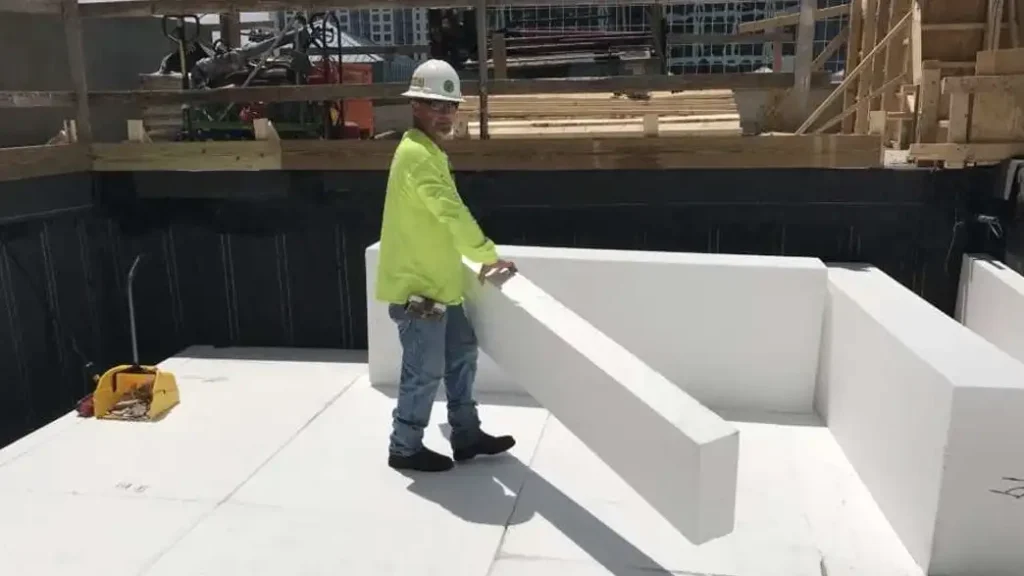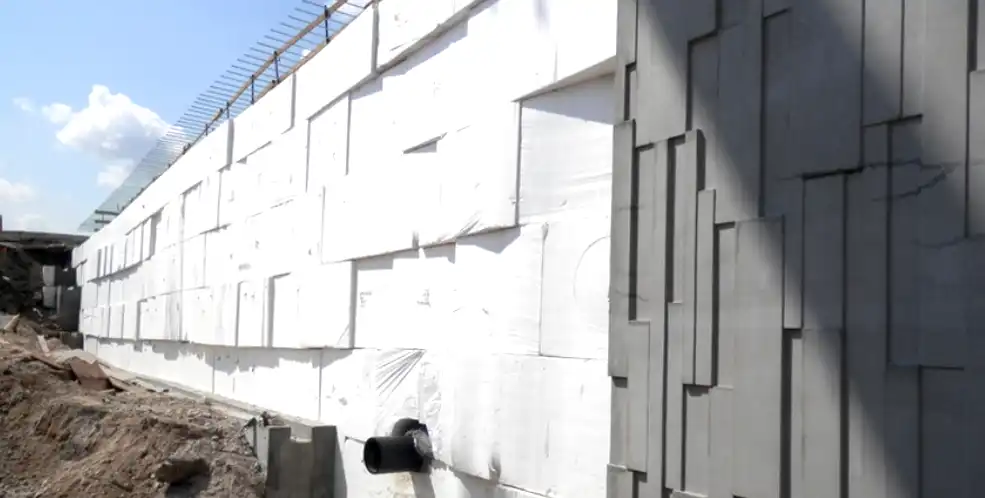In the realm of modern construction, innovation is key to sustainable and efficient building practices. One such innovation that has gained traction in recent years is the use of Expanded Polystyrene (EPS) for construction purposes.
This article delves into the various aspects of utilizing Expanded Polystyrene for Construction, exploring its benefits, applications, environmental impact, and adherence to regulations.
Understanding Expanded Polystyrene for Construction
Expanded Polystyrene, commonly known as EPS, is a lightweight, rigid, and versatile material derived from polystyrene beads.
Through a process of expansion, these beads transform into a cellular structure, resulting in a material with excellent insulation properties and structural integrity.
Benefits of Expanded Polystyrene in Construction

Expanded Polystyrene (EPS) offers a multitude of advantages that make it a preferred choice in construction projects:
Stable R-Value:
EPS provides stable thermal performance over time, maintaining its insulation properties without significant degradation. This stable R-value ensures consistent energy efficiency and thermal comfort within buildings, even in fluctuating environmental conditions.
Dimensional Stability:
EPS exhibits excellent dimensional stability, meaning it retains its shape and size under various loads and environmental factors. This property ensures structural integrity and minimizes the risk of deformation or warping, contributing to the longevity of construction components.
Compressive Resistance:
Despite its lightweight nature, Expanded Polystyrene demonstrates impressive compressive resistance. It can support substantial loads without experiencing significant deformation, making it suitable for applications requiring structural support or load-bearing capacity.
Ease of Use:
EPS is highly versatile and easy to work with, offering flexibility in design and installation processes. It can be easily cut, shaped, and manipulated to fit specific project requirements, facilitating efficient construction workflows and minimizing labor costs.
Lightweight:
One of the most notable advantages of EPS is its lightweight nature, which simplifies handling, transportation, and installation processes. Its low weight-to-volume ratio reduces structural loads and foundation requirements, resulting in cost savings and enhanced construction efficiency.
Use of Expanded Polystyrene in Construction

Expanded Polystyrene (EPS) is widely utilized in construction for its versatility, efficiency, and effectiveness across various applications:
Wall Insulation:
EPS panels are commonly used as insulation material for exterior walls. They provide a continuous thermal barrier, reducing heat transfer and minimizing energy consumption for heating and cooling purposes. The lightweight nature of EPS simplifies installation processes while ensuring optimal thermal performance.
Roof Insulation:
EPS insulation boards are commonly employed in roofing systems to enhance thermal protection and energy efficiency. By minimizing heat loss through the roof, EPS insulation contributes to reduced energy costs and improved occupant comfort. Its lightweight characteristics make it easy to handle and install, even in complex roofing configurations.
Foundation Systems:
EPS geofoam serves as a lightweight fill material in foundation construction. It provides stability and reduces lateral pressures on retaining walls, contributing to the overall structural integrity of buildings. The high compressive strength of EPS ensures long-term stability, particularly in areas with varying soil conditions.
Void Fill and Structural Support:
EPS blocks and shapes are used for void fill and structural support applications in construction. They offer lightweight yet robust solutions for filling voids, supporting concrete slabs, and creating architectural features. EPS’s versatility allows it to adapt to various design requirements, making it a preferred choice for builders and designers.
Decorative Elements:
Expanded Polystyrene is also utilized for decorative purposes in construction. It can be molded into intricate shapes and designs, offering endless possibilities for architectural embellishments, cornices, and façade elements. The lightweight and durable nature of EPS make it suitable for both interior and exterior decorative applications.
FAQs
How does Expanded Polystyrene contribute to energy efficiency in buildings?
Expanded Polystyrene provides superior insulation properties, reducing heat transfer and minimizing energy consumption for heating and cooling purposes.
Is Expanded Polystyrene environmentally friendly?
Yes, Expanded Polystyrene is environmentally friendly due to its low carbon footprint, recyclability, and long lifespan, aligning with sustainable building practices.
What are the primary advantages of using EPS in construction?
The primary advantages include enhanced insulation, structural strength, versatility, and sustainability, making EPS a preferred choice for builders and designers.
Are there any regulatory considerations when using Expanded Polystyrene in construction?
Yes, builders must adhere to building codes, compliance guidelines, and safety standards to ensure the safe and effective use of EPS in construction projects.
How does EPS contribute to the overall sustainability of buildings?
EPS contributes to sustainability by reducing energy consumption, minimizing waste generation, and promoting recycling efforts, thereby supporting environmentally conscious building practices.
Can Expanded Polystyrene be recycled?
Yes, Expanded Polystyrene is recyclable, and post-consumer waste can be repurposed into new products or used as a lightweight aggregate in concrete production, reducing environmental impact.
Conclusion
In conclusion, Expanded Polystyrene offers a myriad of benefits for construction projects, ranging from enhanced insulation and structural strength to environmental sustainability. By leveraging the unique properties of EPS, builders, and designers can create resilient, energy-efficient buildings that meet the evolving needs of modern society.
